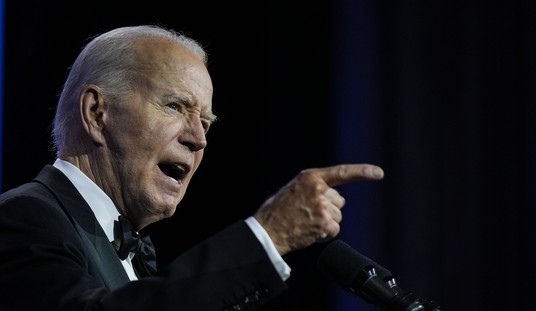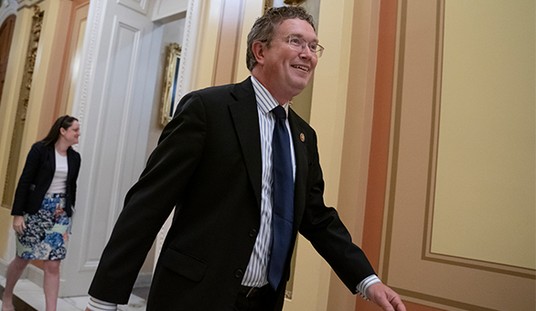WASHINGTON — Thirty-nine Republican senators introduced a bill today to block the Internal Revenue Service from issuing a rule that would narrow the definition of who qualifies for a 501(c)(4) exemption as a social welfare organization.
The Stop Targeting of Political Beliefs by the IRS Act, which also passed out of a House committee, would freeze the finalization of the rule for one year and restore the 501(c)(4) standards and definitions that were in place before conservative groups started to come under extra scrutiny in 2010.
Sen. Jeff Flake (R-Ariz.) said on the Senate floor today that he learned over the Thanksgiving break “that the IRS had diagnosed the problem and offered its regulatory solution despite the fact that the multiple investigations were far from complete.”
“On Friday, November 29th, and without warning, the IRS published a proposed rule that would restrict the activities of 501(c)(4) organizations, effectively limit their speech, and curtail their civic participation – bringing a whole new meaning to Black Friday,” Flake said. “The rule singles out the same conservative groups that were previously targeted by the IRS and threatens to shut them down. It further attempts to legitimatize the targeting of organizations that hold ideological views in contrast to the administration’s.”
“It should be no surprise since critics of these conservative organizations have openly called for their extinction.”
The proposed guidance defines the term “candidate-related political activity,” and would amend current regulations by indicating that the promotion of social welfare does not include this type of activity, according to the IRS, which said the intention is to “reduce the need to conduct fact-intensive inquiries by replacing this test with more definitive rules.”
Activities that would disqualify an organization seeking 501(c)(4) status include “communications that expressly advocate for a clearly identified political candidate or candidates of a political party,” “any contribution that is recognized under campaign finance law as a reportable contribution,” hosting a candidate at an event within 60 days of a general election, and voter registration or “get-out-the-vote” drives.
Flake said the IRS wants “to force 501(c)(4) organizations into ill-fitting structures devised more appropriately for political committees in order to require the disclosure of conservative supporters.”
“The IRS and the White House claim innocently that the proposed rule is meant to clear up confusion about how to process the applications of 501(c)(4) organizations involved in political activities,” the senator continued. “…Before the IRS began flagging the applications of conservative groups in February 2010, these types of applications were being processed within three months. Email traffic between IRS employees shows that the applications of conservative organizations were not flagged out of confusion but rather because of media attention and potential interest to Washington.”
“So let’s call this rule what it is – an attempt to silence the voices of conservative organizations.”
Co-sponsors of the bill, introduced by Flake and Sen. Pat Roberts (R-Kansas), include Minority Leader Mitch McConnell (R-Ky.), Minority Whip John Cornyn (R-Texas), and Republican Conference Chairman John Thune (R-S.D.).
“To be clear – 501(c)(4)s are permitted to engage in the political process and in political discourse. And they should continue to be allowed to do so. But this regulation seeks to limit their participation in a host of advocacy and education activities, even nonpartisan voter registration and education drives,” Flake said.
“These activities have a clear role in promoting civic engagement and social welfare – the precise purpose of the 501(c)(4) structure. Unfortunately, the rule would suppress conservative voices by forcing organizations to quit these activities or be shut down,” he added. “Such a gag order on conservative groups has been long-desired by this administration.”
In the House, the Ways and Means Committee passed the lower chamber’s version of the bill today.
“These rules are a blatant attempt to legalize and institutionalize targeting by the IRS, and are designed to put conservative groups out of business. It is no wonder the IRS tried to develop this rule behind closed doors and out of the public’s view,” said Ways and Means Chairman Dave Camp (R-Mich.). “This legislation will put a hold on these proposed rules until Congress completes its investigation into the IRS’s abuses.”
“We need to finish our investigation into the IRS’s abuses and receive the Inspector General’s final report,” Camp added. “This legislation will ensure that Treasury does not rush to put this rule into effect, which it can do as soon as the end of this month, and can process the over 23,000 public comments already received.”
Camp discovered that the administration has been working on the rule since 2011, but is now framing it as a corrective measure to the IRS targeting scandal. The Treasury Department didn’t mention the rule in its 2011 or 2012 priority guidance plans that should have listed rules in process.
Ranking Member Sander Levin (D-Mich.) protested that the committee was wasting time on “a tireless effort by Republicans to find political scandal, regardless of what the truth holds, as they look toward the November election.”
“More than 500,000 pages of IRS documents have been turned over to congressional committees. Five dozen interviews of current and former IRS employees have taken place. Lawmakers at 15 congressional hearings have questioned IRS officials. In all, more than 150 IRS employees have worked 70,000 hours—time taken away from taxpayer services—to accommodate the ongoing requests for information from congressional investigators,” Levin said. “And yet, there’s been absolutely no evidence of any corruption unearthed. Not a single piece of evidence showing any political motivation. Nothing showing any involvement outside the IRS.”
In a letter last week to IRS Commissioner John Koskinen, House and Senate Republican leaders called on the agency to drop the proposed rule, which is opposed by diverse groups ranging from the ACLU to the Chamber of Commerce.
They reminded the new IRS leader that now was the time to decide whether “to use the agency as a means to infringe on the constitutionally protected right to free speech.”
“One of the reasons you have been appointed to a five-year term is so that you will be protected from undue political pressure,” they wrote. “So, we urge you to take a stand against this kind of intimidation, abandon this proposed rule, and make it clear to a nervous public that your agency will no longer engage in government-sanctioned crackdowns on speech.”
Flake said on the floor that the number of public comments received on the rule is the most ever received by a government agency.
“Clearly, the public sees through the administration’s veiled attempt to squash free speech and shut down opposition to its priorities,” the Arizona senator said.
“It’s time to end the intimidation and harassment. Let’s preserve the First Amendment rights of all groups, regardless of their ideology, especially those that commit themselves to improving our society.”









Join the conversation as a VIP Member